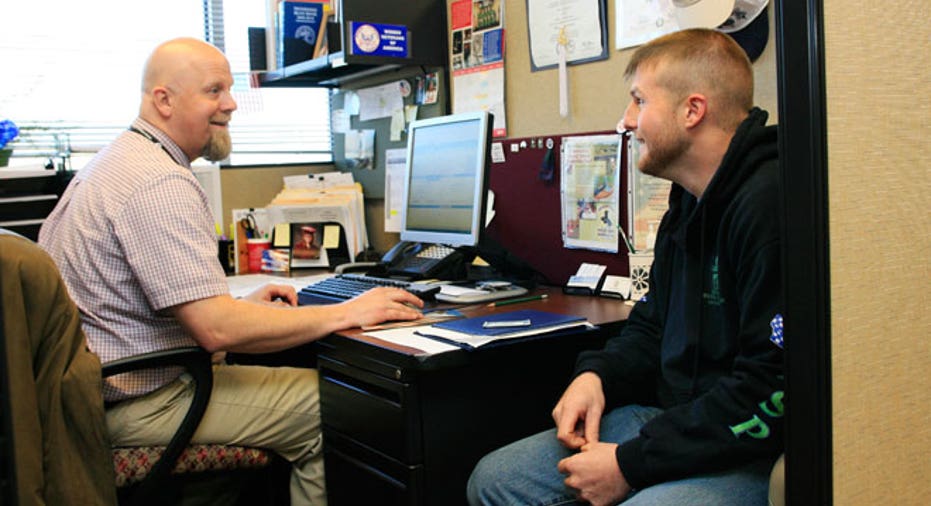The Skills Employers Wish College Grads Had

Turns out, the skills and education recent college graduates acquired during their time on campus might not be serving them well when it comes to proving their worth to potential employers.
“Soft skills have deteriorated more than hard skills in the view of CEOs and recruiters within companies,” says Candice Olson, founder of professional boot camp The Fullbridge Program.
According to a 2013 study by American Express (NYSE:AXP) and Gen Y research firm Millennial Branding, managers have an overall negative view of young workers, and point to their lack of soft skills regarding communication and interpersonal interactions, time management abilities and willingness to work as a team.
A survey by York College of Pennsylvania's Center for Professional Excellence shows that many college faculty members do not think upperclassmen show a level of professionalism expected in today’s working world. Almost 40% of faculty responded that less than half of students demonstrate professionalism.
But these skills are hard to teach in a classroom setting, and tend to come with office-like experience whether it’s from an internship, volunteer work, participating in student organizations or part-time jobs.
“Soft skills include attitudes and behaviors that correlate highly with career success. They are what enable people with different skills sets and personality that make up an organization to work effectively together and without friction. They are essential,” says Olson.
The Fullbridge Program offers different programs that teach young adults the skills necessary to excel in the workplace. Olson says the admission process is “quite selective” and "is more like applying for a job than a school.” Each program is tailored to teach enrollees the skills to help leverage an education into a successful career. “None of this is taught in school, and you aren't born knowing it, but it makes sense to make sure it’s part of the portfolio. Otherwise good grades, sports and clubs are of no avail in getting and succeeding at work,” says Olson.
Jody Miller, CEO of Business Talent Group, says the pace of business today makes it tough for companies to justify taking the time to properly train new hires lacking soft skills. “Globalization and advancements in technology means the productivity and efficiency demanded from workers is higher, adding pressure to new workers. The expectations of entry-level employees and what they need to contribute is higher than ever before.”
Hiring prospects are already bleak for Millennials as many-entry level jobs disappeared in the wake of the financial crisis and companies have higher standards for recruits, she says. “You don’t want to hire someone who needs extra training and won’t be able to hit the ground running and get the job done.”
Texting is Different than Communicating
Despite their persistent use of social media and texting, a top complaint from employers about Millennial-age workers is their lack of communication skills. “Younger people are communicating at great levels but it’s through technology,” says Lauren Stiller, author of You Raised Us, Now Work With Us. “This means their verbal communication skills are diminished. They are talking less to each other and their other communication skills are highly abbreviated and perfunctory.”
She points to her days working as a lawyer when someone would ask a younger worker to call a client with a message. “The older worker meant pick up the phone and have a conversation, but all the Millennial hears is communicate with the client, so they send a text because it’s more efficient in their mind.”
She stresses that younger candidates need to demonstrate they can hold a conversation, send professional emails and interact with the other staff and clients in a professional manner.
Strong social media skills can be a resume booster for companies looking to increase their brands’ exposure, but this expertise doesn’t translate into communication skills. “Younger workers don’t inherently understand formal email communication, how to handle a conference call or handle workplace disagreements, which all require strong communication skills.”
Online Boldness Doesn’t Translate into In-Person Confidence
“I can’t tell you how many times I have been blown away by a candidate’s online profile and then be disappointed when they are sitting in front of me,” says Chantel Waterbury, founder of Chloe + Isabel, a jewelry direct-sales company that specifically targets Millennials in the hiring process. “I find many recent college students and grads don’t make eye contact, don’t carry themselves well and don’t speak with authority, which can be a little disheartening to the interviewer.”
The interviewing process isn’t just about learning more about what’s on a resume, it’s also the time to see how candidates interact with others and present themselves in a professional setting.
Being able to give a presentation and contribute in a meeting are skills every successful employee needs to have, says Waterbury, but they require confidence and a level of professionalism in regards to how to best articulate thoughts and ideas as well as provide criticism and critique.
There’s No ‘I’ in Team, But there is in 'Attitude'
David DeLong, author of Graduate to a Great Job and Make Your College Degree Pay Off says the best way for young workers to get on a company’s payroll is to prove their ability to work with others and maintain a positive attitude.
“We have a more diverse workforce than ever before and employers want to know that you will be able to fit right in with everybody, whether it’s veteran engineers, clients from around the world or another new hire.” Having a positive outlook and determination to get a task done also needs to be conveyed to employers, he adds.
“Proving soft skills on a resume is difficult, but it’s all about giving examples of your strong communications skills, ability to work well with others and ability to overcome obstacles. You have to prove to the company you will bring value.”



















